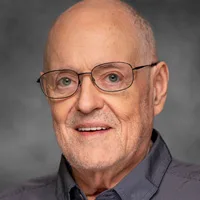David Gleason Builds A Digital Archive Worth Honoring

While working as a Univision programming and research exec in the early 2000, David Gleason began digitizing publications about the radio and TV business and posting them on his personal website so that he could easily share them as he traveled around and met with station staff.
It was helpful in persuading the locals to take his advice, he says. “Rather than it just sounding like my opinion, I needed some documentation.”
Over the next two decades as he moved into radio consulting, he carried on the practice, often scanning whole magazines, directories, books and a host of broadcasting-related material.
It was great for his business since clients could see — and access — the rapidly growing industry information he had at his fingertips, he says.
Even when his consultancy slowed during the pandemic, he kept at it, devoting more and more of his time and money to building the digital library.
Today, Gleason’s online archive has reached mammoth proportions, more than nine million pages that can be found at www.worldradiohistory.com.
Fully searchable and well organized, the database not only contains publications about broadcasting, but also of the related fields of advertising, media buying, media research and cable.
Visitors to the site will also find music magazines, network and station publications, FCC regulations and decisions, fan magazines, radio enthusiast magazines, technical manuals, programming guides and “oddities.”
There are parallel, but smaller collections of publications from 10 other countries and “Latin America.”
At 77, Gleason’s commitment to digitizing the past has not slowed much, but his motivation has changed. It’s less about consulting and more about just keeping the record straight.
He’s aghast at the misinformation he finds about radio stations on Wikipedia. Most of the articles he sees there are laden with significant errors, he finds. “Either they forget the entire past history, or they have terrible errors due to a misunderstanding of early radio technology.
“The information is so poor and so predominantly wrong that there has to be source material.”
In recognition of Gleason’s efforts, the Library of American Broadcasting Foundation (LABF) has tapped Gleason to receive its first Excellence in Preservation Award, part of the foundation’s campaign to encourage stations to preserve their audio, video and print archives for future generations.
LABF will present the award to Gleason on Oct. 25 at the NAB Show New York following a panel of TV and radio preservation on which he will appear.
“There is no stopping him,” says LABF Co-chairman Heidi Raphael of Gleason. “What he has accomplished — virtually singlehandedly — is extraordinary. He’s made an unparalleled contribution not only to the history of broadcasting, but also to the story of the modern world as reflected and shaped by the media.”
David Kennedy, an LABF executive committee member, calls Gleason a “true student” of broadcasting. “The time and effort he devoted to create and assemble his archive is a loving tribute to the medium’s past and a remarkable gift to all who care about its future.”
“By creating Worldradiohistory.com, David Gleason has created a resource that has revolutionized research in media history and has allowed researchers to uncover stories that have never been told before,” says Mike Henry, of the Library of American Broadcasting at the University of Maryland.
Gleason is not an archivist by training.
He’s all radio broadcaster, whose roots go back to his high school days in Cleveland and working at the local AM-FM in a whatever-needs-to-be-done capacity, first for free and then for $1.15 an hour.
An opportunity while still in high school to intern at a Mexican radio station introduced him to the Spanish-language radio that would consume the much of his career.
Over the years, he has owned stations in Ecuador and managed them in Puerto Rico and the Dominican Republic. He has also consulted to or managed Spanish-language stations in major U.S. markets with rapidly growing Hispanic communities.
He developed the Spanish-language package for XM Satellite Radio in 1999 and joined Univision Radio (70 stations in 17 markets) in 2003 as executive VP and head of its in-house programming and research arm. He stayed with the group until 2011 and came back as a consultant two years later.
Gleason reflects that he could write about broadcasting history and provide some analysis, but he has decided that it’s more important that he just “put the evidence out there. I can be the data collector and let people see what the real facts are.”
































Comments (0)